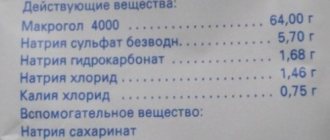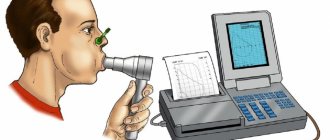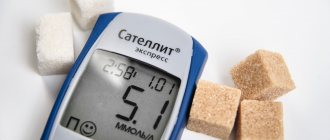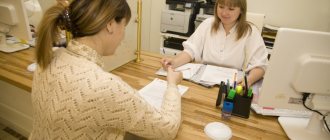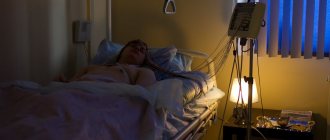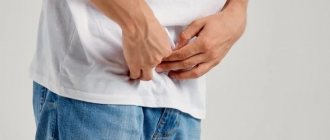Fibrogastroscopy is an informative examination method that helps to identify many pathologies of the digestive system in the initial stages. This allows the doctor to make an accurate diagnosis and develop a treatment strategy. Therefore, it is so important to carefully prepare for the procedure so as not to miss areas of pathology.
Gastroscopy is a responsible procedure for which you need to prepare. It is especially important to follow all the rules on the eve of the examination. The informativeness and usefulness of the diagnosis depends on how physically and psychologically prepared a person is. In the article you will find complete information on how to prepare for the procedure.
Preparation for fibrogastroduodenoscopy (FGDS)
- Alcohol should be avoided 2-3 days before the test.
- 12 hours (minimum 8 hours) before the test, you must avoid eating.
- 8 hours before the test, it is necessary to minimize fluid intake (pure still water). 4 hours before the test, you must completely stop drinking liquids.
- On the eve of the procedure, you need to eat light food (exclude fatty, fried, smoked, spicy, pickled foods, fresh fruits and vegetables).
- Discuss in advance with your doctor the possibility of using anesthesia, the need and regimen for taking medications on the day of the FGDS.
- Brush your teeth no later than 2 hours before the test.
- Stop smoking at least 2 hours before the test.
Experts recommend paying attention to your psycho-emotional mood. If you strictly follow the preparation rules, the procedure will go quickly and with minimal discomfort. During the examination, you need to listen carefully to the doctor and follow his recommendations.
How long should you fast?
The examination of the stomach is carried out strictly on an empty stomach. To do this, you need to organize complete rest for the digestive tract for 12 hours (minimum 8 hours).
-If FGDS takes place in the morning or afternoon (before 15:00) , a light dinner is allowed in the evening before the study. Next, you need to refrain from eating.
-If FGDS is scheduled for the afternoon (after 15:00) , the rules for preparing for the study change somewhat. To avoid feeling unwell, the patient can arrange a light snack in the morning. It is important that breakfast takes place no later than 8 hours before the start of the procedure. You can eat low-fat yogurt, drink herbal tea with honey.
Violation of this rule is fraught with severe nausea during the study, vomiting and extremely unpleasant sensations. Also, the information content of the study is sharply reduced.
Diet before gastroscopy
One of the main questions is: what can you eat on the eve of diagnosis. Preparation for gastroscopy involves creating a certain diet. 3 days before the procedure, a special diet is prescribed. If a person is prone to flatulence, then during this period one should take medications prescribed by the doctor.
How to diagnose a stomach ulcer?
General recommendations for the diet:
- 5 meals a day;
- food is consumed in small portions;
- Dishes that cause increased gas formation are excluded from the diet;
- You need to drink at least 2 liters of plain water per day.
The day before gastroscopy, the most strict stage of the diet begins. What not to eat:
- strong coffee;
- juices;
- milk;
- fatty meat and fish;
- blue cheeses, mayonnaise and cream;
- sausages;
- smoked meats;
- spices;
- spicy dishes;
- legumes;
- dark varieties of bread;
- baking;
- alcoholic and carbonated drinks;
- pickled dishes;
- fresh vegetables and fruits;
- salo;
- chocolate;
- nuts.
Fried and fatty foods before gastroscopy are strictly prohibited
The diet before gastroscopy of the stomach is aimed at unloading the gastrointestinal tract. Preference is given to dishes that do not irritate the mucous membrane of the digestive tract. Patients are allowed to use:
- oatmeal and buckwheat porridge;
- mashed potatoes;
- boiled or baked vegetables;
- boiled chicken meat;
- eggs;
- sour cream and low-fat cottage cheese;
- low-fat soups;
- fruit and vegetable juices;
- herbal teas.
Allowed and prohibited foods before gastroscopy
| Can | It is forbidden |
| Mashed potatoes, porridge (rolled oats, buckwheat) | Fatty meat, fish |
| Vegetable soups | Pickled vegetables, smoked meats, canned food |
| Steamed meat cutlets from lean meats and fish | Mushroom dishes |
| Fruit decoctions | Seasonings, hot sauces, mayonnaise |
| Boiled eggs | Whole milk, full fat cottage cheese |
| Dried white bread | Pasta, yeast bread and baked goods |
| Baked vegetables, vegetable stew | Citrus fruits, tomatoes, legumes |
If the procedure is scheduled for the morning, then the last meal should be no later than 19:00.
How to deal with bad habits?
To effectively prepare for an FGDS of the stomach, it is better for an adult to give up bad habits. Alcohol consumption should be avoided at least 2 days before the test.
Doctors give separate recommendations to smokers: you need to stop smoking at least 2 hours before the test. The fact is that nicotine stimulates the secretion of gastric juice and peristalsis of the gastrointestinal tract. The activity of the digestive system can cause additional discomfort for the patient. To avoid such symptoms, you should avoid smoking for a while.
Additional recommendations
Additional recommendations include tips that help ensure the most comfortable conditions for conducting the study:
- Do not use perfumes or deodorants with strong odors on this day. During the procedure, the gag reflex is exacerbated, so the smell can provoke a worsening of the situation or cause unnecessary discomfort. By the way, medical specialists may also experience discomfort due to the smell, or even allergic reactions.
- Comfortable clothes. It should be free and not be removed over the head.
- Brushing your teeth before the procedure is allowed, but drinking water is not allowed - it’s better to just rinse your mouth.
For FGD diagnostics, there are not only medical indications, but also contraindications that require mandatory correction:
- ARVI, sinusitis, tonsillitis, tonsillitis and other colds, accompanied by a number of unpleasant symptoms that may affect the quality of the study. It is first necessary to treat existing diseases and eliminate all symptoms that can lead to complications after diagnosis.
- The patient has a history of strokes and heart attacks in the last 6 months. It is necessary to wait for the body to recover after such serious illnesses. The patient is also prescribed hypertensive or antiarrhythmic drugs if there are relative contraindications to the FGDS procedure.
- Pregnancy. FGDS study in this case is carried out after successful delivery.
In fact, FGDS is a diagnosis that is not such a terrible manipulation that you should be so afraid of. It is important to understand that the results of the study will allow you to make the correct diagnosis and prescribe effective treatment. Preparation is easier with the support of loved ones and relatives. You can take advantage of advice on special thematic forums, where people who have undergone this procedure talk about their experiences. You can do an FGDS of the stomach quickly and without discomfort with us, for details follow the link.
What should people who take medications do?
For some adults, the question of how to prepare for gastroscopy of the stomach is relevant if you need to take medications at a certain time. We can talk about antihypertensive drugs, hormone replacement therapy, etc. It is better to coordinate this point in advance with the doctor who prescribes a stomach examination. It is impossible to skip taking medications, as this can adversely affect the well-being and general condition of the patient during medical manipulation.
At the same time, you need to comply with the requirements regarding hunger and fluid restriction. In most cases, the solution is to take medications on an empty stomach, 4 hours before the test with a small amount of water. If the procedure is scheduled for the morning, it is better for the patient to set an alarm clock and wake up early in order to take the medications at the right time.
What is needed before the procedure
Fibrogastroscopy is prescribed to identify various pathologies of the digestive tract, including neoplasms, ulcers, and inflammation. The reason may be the patient's complaints of pain in the hypochondrium, epigastric region, heartburn, heaviness in the stomach. Other objective signs may also indicate stomach diseases, for example, anemia, pale and flaky skin, and bad breath.
Consultative appointment
Before the procedure, be sure to consult with a gastroenterologist. He will find out and clarify your complaints, prescribe or cancel medications that you take regularly. Before the procedure, a psychological state is extremely important, so the doctor may prescribe sedatives and additional medications to lower blood pressure if he notices signs of an unstable psyche or panic attacks.
The doctor will identify conditions that influence the choice of anesthetic drugs during FGDS. He will ask about hypersensitivity to medications used in gastroscopy, cholelithiasis (magnesium sulfate is contraindicated), the presence of glaucoma (in this case atropine is contraindicated), other pathologies, as well as pregnancy and lactation.
How to prepare if a biopsy is performed?
When identifying ulcerative defects of the mucous membrane, neoplasms, foci of inflammation, gastroscopy is combined with a biopsy. Manipulation involves sampling suspicious areas of the mucosa in several places for the purpose of histological analysis. A biopsy can be prescribed in advance or directly during an endoscopic examination of the stomach and duodenum. Preparation for the procedure coincides with standard preparation for FGDS. That is, additional organizational measures are not needed.
How to behave during gastroscopy
In order to properly prepare for gastroscopy of the stomach, the patient must know in advance how to behave and breathe correctly. Not all people tolerate the study well. Statistics show that painful sensations rarely occur, because modern endoscopes are small and thin.
But often a gag reflex occurs, interfering with the normal procedure. It is necessary to take evenly slow inhalations and exhalations through the nose. This allows you to relax and ensures that enough oxygen reaches your lungs.
Proper breathing will help make the procedure more comfortable
The following recommendations may also be helpful:
- Choose comfortable clothing for the procedure that will not restrict movement.
- Relax. Fear contributes to excessive tension in the muscles of the esophagus. This interferes with the free passage of the gastroscope. People with increased nervousness may be offered sedatives.
- Breathe correctly (through your nose only). If you breathe through your mouth, saliva can enter your respiratory tract and cause a cough.
Rules for preparing for FGDS under anesthesia
The use of general anesthesia allows the patient to be relieved of any discomfort during gastroscopy. Anesthesia ensures immersion in sleep and complete relaxation of the muscles, which simplifies the diagnosis in general. However, medicated sleep requires additional preparation from the patient.
To conduct FGDS under anesthesia, patients over 45 years of age must provide an ECG to the anesthesiologist (expiration date - 1 month), as well as permission from the general practitioner (in the presence of pathologies: diabetes mellitus, heart disease, etc.).
Since preparation for gastroscopy involves refusing to eat and drink, additional restrictions are not necessary. The need to use or discontinue medications on the day of the study is agreed with the attending physician.
Basic Rules
An adult needs to prepare for the procedure in advance (several days in advance). That is why the patient must be informed in advance about certain rules. Since this is an invasive technique that involves, albeit small, but still health risks, it is recommended to carry out the following studies and laboratory tests before performing it:
- electrocardiogram;
- clinical blood test;
- coagulogram;
- determination of blood group and Rh factor;
- blood tests for HIV, syphilis, hepatitis.
Scheme of gastroscopy
Preparation for gastroscopy of the stomach necessarily involves following a strict diet and short fasting immediately before the study. The doctor will tell you how many hours the patient should not eat. As a rule, the last meal is allowed 12 hours before the procedure.
If the procedure is performed under local anesthesia, then before it begins, a local anesthetic (Lidocaine) is injected into the patient's throat. If the patient is aware that he has an increased sensitivity to such drugs, then he must notify the doctor about this.
This study is done quickly - no more than 10 minutes. If there are circumstances where an examination is needed over a long period of time, a drug for general anesthesia is administered intravenously to the person. Before gastroscopy, you should also remove contact lenses (or glasses), dentures, and empty your bladder.
No ads 1
